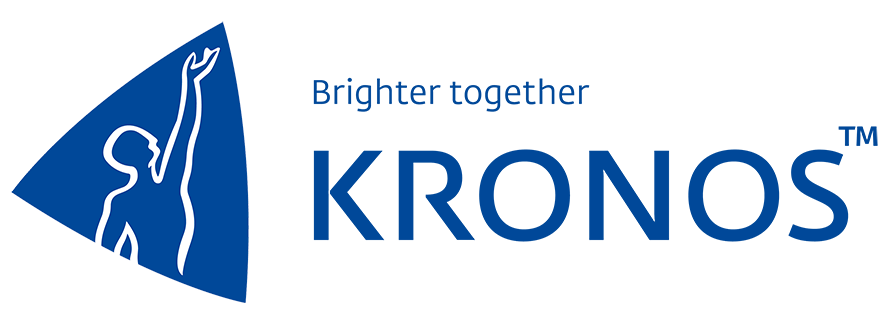Security Information Systems Security Checklist
Template for managing information systems security activities to protect confidentiality integrity and availability of data through risk assessment incident response and ongoing monitoring.
Section 1: System Inventory
Section 2: Access Control
Section 3: Data Classification
Section 4: Incident Response
Section 5: Security Awareness
Section 6: System Maintenance
Section 7: Compliance
Section 8: Physical Security
Section 9: Disaster Recovery
Section 10: Penetration Testing
Section 1: System Inventory
This section of the process involves gathering information related to existing systems within the organization. A comprehensive system inventory is crucial for identifying current assets, infrastructure, and software applications. The goal is to map out all the components that make up the overall system architecture, including hardware, operating systems, network configurations, and any other relevant details. This step ensures that a clear picture of what already exists is obtained, serving as a foundation for further analysis and planning. A thorough examination is conducted to account for every aspect of the system, providing an accurate representation of its current state.
FAQ
How can I integrate this Checklist into my business?
You have 2 options:
1. Download the Checklist as PDF for Free and share it with your team for completion.
2. Use the Checklist directly within the Mobile2b Platform to optimize your business processes.
How many ready-to-use Checklist do you offer?
We have a collection of over 5,000 ready-to-use fully customizable Checklists, available with a single click.
What is the cost of using this Checklist on your platform?
Pricing is based on how often you use the Checklist each month.
For detailed information, please visit our pricing page.
Section 2: Access Control
In this section, access control procedures are implemented to ensure that only authorized personnel have access to sensitive areas and information. The process involves evaluating individual clearance levels against required access permissions, reviewing and updating access records as necessary, and monitoring access attempts to identify potential security breaches. Access control measures include the use of identification badges, biometric authentication, and secure entry points with limited access hours. Additionally, regular audits are conducted to ensure compliance with established access policies and procedures. This section also outlines the roles and responsibilities of personnel involved in access control, including supervisors and authorized access personnel.
Section 3: Data Classification
In this section, data is categorized into predefined classes based on its sensitivity, importance, or other relevant criteria. This classification enables the implementation of appropriate security measures to protect sensitive information from unauthorized access. The classification process typically involves assigning a specific label or code to each dataset or field of data, which serves as a reference for handling and storing the classified information. The goal is to ensure that only authorized personnel have access to sensitive data, thereby minimizing the risk of data breaches or unauthorized disclosure. A well-structured data classification system helps organizations maintain compliance with relevant regulations and industry standards, such as GDPR or HIPAA.
Section 4: Incident Response
This section outlines the procedures to follow in the event of an incident. The response plan is designed to minimize downtime, contain damage, and facilitate swift recovery. When an incident occurs, the designated team leader initiates the response process. This involves quickly assessing the situation, identifying affected systems or resources, and implementing containment measures as necessary. Next, the team works to isolate the issue, mitigate any further impact, and develop a plan for restoration. Communication with stakeholders is also crucial during this phase, ensuring that relevant parties are informed about the incident's status and any subsequent actions being taken. This section provides detailed instructions on how to execute each step efficiently and effectively.
Section 5: Security Awareness
This section focuses on enhancing employees' understanding of security protocols and best practices to safeguard company data and assets. The goal is to ensure that all personnel are aware of their roles in maintaining a secure work environment. This step involves training sessions and workshops where employees will receive information on the latest security threats, how to identify and report potential breaches, and proper password management techniques. The importance of keeping software and operating systems up-to-date is also highlighted, along with tips for safe internet browsing and email usage. At the end of this section, employees should have a solid grasp of what it takes to maintain a secure workplace and be able to make informed decisions regarding security-related matters
Section 6: System Maintenance
System maintenance is crucial for ensuring the continued optimal functioning of software applications. This process involves regular checks and updates to resolve technical issues, correct errors, and improve overall system performance. The goal of system maintenance is to prevent or minimize downtime and maintain user confidence in the application's reliability.
Maintenance activities may include bug fixing, patching, upgrading hardware and software components, and performing backup and recovery procedures. It also entails monitoring system logs for potential problems, responding to user feedback, and implementing improvements based on performance analysis. Regular maintenance can help identify issues before they escalate into major problems, reducing the risk of data loss or security breaches. By prioritizing system maintenance, organizations can prevent costly downtime and ensure their applications remain stable, secure, and highly performant over time.
Section 7: Compliance
In this section, we outline the necessary steps to ensure compliance with relevant laws, regulations, and industry standards. This includes reviewing existing policies and procedures for adherence to regulatory requirements, conducting regular risk assessments to identify areas of potential non-compliance, and implementing measures to mitigate such risks. Our team will also coordinate with stakeholders to gather information on changes in regulatory frameworks and update our processes accordingly. Additionally, we will maintain accurate records of compliance efforts and ensure that all employees understand their roles in maintaining a compliant environment. This section is critical in safeguarding the organization's reputation and protecting its interests from potential legal repercussions.
Section 8: Physical Security
Section 8: Physical Security is a critical component of overall facility security. This process ensures that physical barriers and surveillance systems are in place to prevent unauthorized access, protect sensitive information, and safeguard personnel. Step-by-step procedures for Section 8 include:
1. Assessing the current state of physical security measures such as doors, locks, and alarms
2. Identifying vulnerabilities and areas of high-risk
3. Developing a plan to address identified risks through upgrades or modifications
4. Implementing physical barriers such as fencing, gates, or other perimeter controls
5. Installing surveillance cameras and monitoring systems
6. Conducting regular maintenance and testing of security equipment
7. Reviewing and updating the physical security plan as necessary
Section 9: Disaster Recovery
This section outlines the procedures to be followed in the event of a disaster or major disruption that impacts business operations. The goal is to minimize downtime and ensure continuity by implementing recovery plans for critical systems and processes. Key steps include conducting an initial damage assessment, activating the incident response team, and initiating communication with stakeholders such as customers, vendors, and employees. Next, implement backup power sources and establish a temporary command center if necessary. Also, activate business continuity plans to resume critical operations and communicate revised service levels to stakeholders. Finally, review the disaster recovery process and identify areas for improvement to refine the plan for future incidents.
Section 10: Penetration Testing
In this section, penetration testing is performed to assess the security of the system. The goal is to simulate a real-world attack by attempting to breach the system's defenses through various means. This involves identifying vulnerabilities in the system, network, and applications. A penetration test is conducted by an authorized party, typically using tools and techniques similar to those used by malicious actors. The test aims to determine if unauthorized access can be gained to sensitive data or systems. The results of the penetration testing are then analyzed to identify weaknesses and recommend corrective actions to improve the overall security posture of the system. This process is crucial in understanding the effectiveness of existing security measures and identifying areas for improvement.
Trusted by over 10,000 users worldwide!
The Mobile2b Effect
Expense Reduction
 34%
34% Development Speed
 87%
87% Team Productivity
 48%
48% Generate your Checklist with the help of AI
Type the name of the Checklist you need and leave the rest to us.
Why Mobile2b?
Your true ally in the digital world with our advanced enterprise solutions. Ditch paperwork for digital workflows, available anytime, anywhere, on any device.
 Made in Germany
Made in GermanyEngineered in Germany, ensuring high-quality standards and robust performance.
 Fair Pricing Policy
Fair Pricing PolicyOnly pay for what you use. Get the best value for your enterprise without unnecessary costs.




























 Certified Security and Data Protection
Certified Security and Data Protection Active Support and Customer success
Active Support and Customer success Flexible and Fully customizable
Flexible and Fully customizable